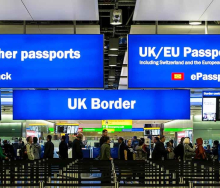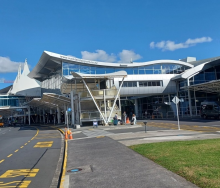The Middle East and Europe are forecast to be top destinations for travel in 2022, according to Marriott, and the group remains optimistic for travel in the years ahead, after experiencing significant progress in 2021.
Speaking during a press briefing last week, Satya Anand, Marriott EMEA President, said that during summer last year, the group’s experience was that Greece reached over 72% occupancy, with Qatar and Turkey reaching over 66%. The Middle East also performed well in the past year, as occupancy for Q4 topped 65%.
He predicted that the Middle East would continue to be popular for international visitors in 2022, referring to a survey on consumer attitudes toward international travel. “The UAE was a top destination of choice for respondents from big outbound travel markets, like the UK, US, France and Italy.
"The UAE has been incredibly resilient when it comes to travel demand throughout the pandemic. In 2021 we saw strong occupancies across the country. We opened 12 new properties in Dubai alone,” he said.
He added that the survey also showed that 69% of respondents were looking at European destinations for their next leisure trip, a region where Marriott has over 660 hotels and resorts across 46 countries.
The brand’s plans
Following the Marriott EMEA debuting of the Westin Brand in London, the company expects to open around 100 new hotels in the coming 10 months, including the Ritz Carlton in Amman, the Paragraph Freedom Square in Tbilisi, the Marriott Resort Palm Jumeriah in Dubai, Moxy in Athens City, the AC Hotel by Marriott in Split, and more.
The brand has also just signed a deal to bring the St. Regis brand to London, with a £90m (R1,86bn) redevelopment of the former Westbury Mayfair Hotel, set to open in 2023.
The brand has increased ways in which loyalty members can earn and redeem points, which includes allowing members to earn and redeem points at food and beverage venues. This had been implemented across the Middle East and would be rolled out to new markets across Europe in 2022, Anand said.
The brand also plans to launch the luxury yacht cruise brand, Ritz Carlton Yacht Collection, in May. This is nearly sold out through to September this year, according to Anand.
Traveller trends
Several trends emerged from the discussion.
*Family – all the family
Anand predicts that after months of quarantine and delayed family get-togethers, the desire for multigenerational travel will continue with high demand for accommodations that suit the extended family. “Last year we commissioned research showing that seven in 10 of those going on holiday will travel with their wider family to make up for time apart. This is where homes and villas by Marriott International will really make a difference,” he said.
*Revenge spending
Jenni Benzaquen,SVP and MD of Design Hotels and EMEA brand portfolio, said the brand had seen a rise in bucket-list trips and nostalgic holidays with families, and getaways to celebrate missed milestones. “There is a pent-up desire to do everything we couldn’t do during lockdown, whether it’s travel, dining, or experiences, and this has resulted in what is being called ‘revenge spending’. We saw strong occupancy rates last summer, which showed us that our guests are adapting to a new way of travelling, and travel has remained high on their list as restrictions began to lift across the region,” she said.
*Regenerative travel
“We have seen a continued trend in our guests’ desire to travel ‘better’. They want to be more proactive, more progressive, and want to effect positive change, all the while still indulging in global exploration.
“We are seeing a huge shift in travel moving towards regeneration. Simply put, regenerative travel is a commitment to leaving people, places and things better than you found then. So this could mean self-renewal, it could mean restoring bonds between people, or leaving places we visit or the local communities better,” she said.
*Barefoot workations
Touching on the working holiday trend, Benzaquen said the next phase of ‘bleisure’ (business and leisure) travel was being referred to as the ‘barefoot workation’. “More than 40% of Gen Z employees plan to take a ‘workation’ this year,” she said. “Over the past 18 months or so, a number of leisure destinations such as Greece, Portugal, Croatia and Dubai have launched digital nomad visas. And we really expect this trend is going to flourish, and many of our properties offer the perfect setting to flip open the laptop right on the beach.”














